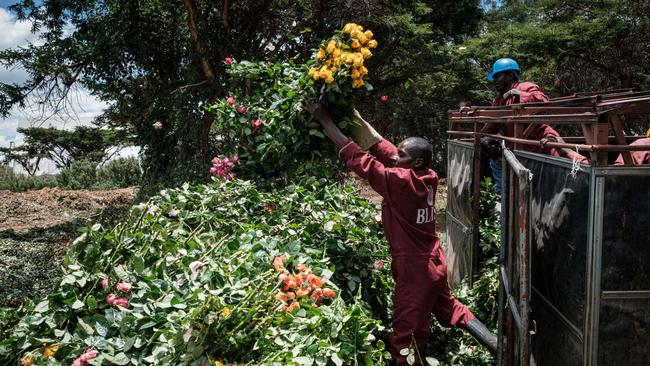National Farmers Federation calls for greater biosecurity over imported flowers
The Federal Department of Agriculture last year introduced an import permit system for shipments of cut flowers and foliage to Australia, but the NFF says it’s not being properly enforced.

IMPORTED cut flowers shipped to Australia are not meeting biosecurity benchmarks, with non-compliance at worryingly high levels.
The Federal Department of Agriculture last year introduced an import permit system for shipments of cut flowers and foliage to Australia from Kenya, Colombia and Ecuador following biosecurity concerns.
However, National Farmers’ Federation chief executive Tony Mahar said the protocols have not had the desired result.
“The current non-compliance rates of up to 50 to 60 per cent from some importers are too high; even 25 per cent, one in four, frankly, just does not pass the pub test given the risk this poses to our industries,” Mr Mahar said.
“As the biosecurity regulator, the Department has a responsibility to manage this risk.”
Federal Agriculture Minister David Littleproud said 100 percent of imported cut flowers were inspected on arrival.
“If biosecurity pests are found, they are treated, exported or destroyed at the importers expense,” he said.
“We only allow consignments free of biosecurity risks onto the Australian market.
“I encourage people to buy local – we do not regulate commercial decisions to import.”
A review of import conditions for cut flowers in 2017 found the high rate of live pests in incoming shipments, coupled with a single point of control at the Australian border, had a significant potential for failure.
AusVeg public affairs manager Tyson Cattle said the Federal Government had performed well in managing other biosecurity risks such as African swine fever but cut flowers remained a blind spot.
“The Government introduced a system to mitigate this risk to Australia’s plant industries, but it has proven to be ineffective, which is severely threatening to our local industries.”
“Cut flower imports should be under the same biosecurity protocols as all other imported products, which aim to ‘reduce biosecurity risk to a very low level, but not zero’. Non-compliance rates of up to 50-60 per cent are unacceptably high; even 25 per cent is still one in four, which would not be acceptable.”
MORE:
SECOND SHUTDOWN FOR VICTORIAN ABATTOIR



